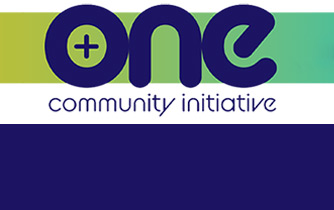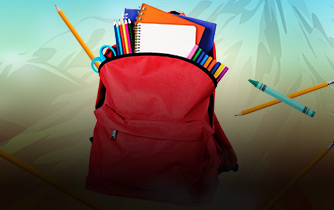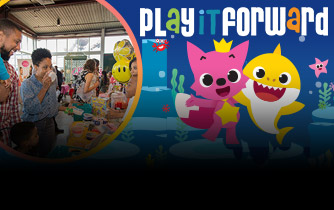Organizations across the Valley held vaccine events for underserved communities, including people with disabilities after many have faced a lack of access and barriers to getting the COVID-19 vaccine in Arizona.
Among the 1,150 people expected to be vaccinated at South Mountain Community College on Saturday was Valerie Duckett. She talked to The Arizona Republic as she sat in the designated recovery zone in the school’s gym, minutes after getting her first and only dose of the Johnson & Johnson vaccine.
Registration tables were set up just outside the gym, after which point individuals joined a line snaking around the gym leading to the vaccination stations. There were five vaccination tables, each with two Walgreens employees administering the vaccines.
Duckett said she had a good experience at the event, adding that it only took her about 15 minutes from the time she showed up until she got her shot.
“This is very efficient,” she said. “Everybody’s super nice. They made it very easy.”
Anabell Castro Thompson, a nurse practitioner, volunteered in the recovery area on Saturday and said there were many Spanish-speaking patients.
She said she and many other nurse practitioners around the country have been getting involved with efforts to address vaccine accessibility and equity.
“We understand what it takes to engage communities and we’re happy to lend our expertise and our time to efforts such as these,” she said.
Duckett knew she wanted the Johnson & Johnson vaccine because she didn’t want to carve out time for an appointment twice and risk side effects from a second dose.
Prior to learning about the event, the result of a collaboration between Equality Health and the HeroZona Foundation, Duckett said she had a difficult time trying to find a convenient appointment.
Throughout the pandemic, she has worried about potentially exposing her high-risk mother to the virus. Both of them were vaccinated Saturday, which Duckett said gives her “more peace of mind.”
“It’s kind of nice just to feel that relief and you’ve done your part to not only save yourself, but other people,” Duckett said.
She wore two masks and said she is still “nervous” about leaving her home during the pandemic, but said getting the shot would mean she could gradually get back to some of the activities and people she’s missed for more than a year.
The experience was also meaningful to Aura Jessica Ruiz, a Walgreens pharmacist and pharmacy manager who assisted with the effort.
“This is my area, these are my patients, these are the people I see every single day,” she said. “I’m so happy to be a part of this so we can make sure we try to break some of the barriers that we see in these communities to have access to the vaccine.”
She said she hoped events like the one on Saturday, which included many bilingual staff, would help those individuals in particular, feel seen, heard and supported through the pandemic.
“Just because they might not speak the language or they might not have the resources doesn’t mean we don’t want them to have that opportunity as well,” she said.
Ruiz said having vaccination events specifically target underserved individuals will have a sweeping impact when it comes to community health and eventually moving out of the pandemic. She specifically mentioned the larger family size that’s common in communities like hers, emphasizing that a vaccinated family member can help protect others while also encouraging them to get vaccinated themselves.
“Everything counts,” she said. “This little small community can make a huge difference.”
Ruiz encouraged the public to make use of resources and pharmacies in their area to get accurate information about the vaccine and the options they have to receive it. She hoped that more and more people would decide to get their shot.
“Any vaccine that’s available to them is the best vaccine, and that’s the only way we can actually get back to what we used to think normal life was,” she said.
Castro Thompson, Equality Health’s senior vice president of health equity, said “we are sacrificing equity for speed” oftentimes when it comes to vaccine distribution, causing lower vaccination numbers among diverse communities. That trend is why she feels it’s so important to bring the vaccine to those communities.
“We’re bringing people in the community that look like them so we can foment trust and decrease misinformation and myths and ensure they’re getting the right information,” she said.
Mistrust rooted in the four-decade Tuskegee study, as well as other examples of medical exploitation and mistreatment, has contributed to a greater hesitancy of getting the COVID-19 vaccine among Black Americans. They have received disproportionately fewer doses of the vaccine but have disproportionately higher rates of COVID-19 cases, hospitalizations and deaths, experts say.
USA TODAY reported results of a survey by Voto Latino in March, which found that almost 73% of Latino people surveyed knew someone who had COVID-19, and a third knew someone who died of the illness.
Despite that, just shy of half – 47% – said they were reticent about getting the shot. Around a quarter said they would not take it at all.
Equality Health first held a vaccination and testing event three weeks ago at Cortez Park, then held another one last week at Isaac Middle School and then moved to South Mountain Community College for Saturday’s event.
Equality Health Foundation spokesman Tomas Leon said they were finalizing plans with the state and county to make it a permanent vaccination site open from Monday through Saturday.
There was no shortage of staff at the site on Saturday, with nearly 40 volunteers, 15 Sonora Quest Laboratories staff to handle COVID testing, 20 Walgreens staff to administer vaccines, 15 Phoenix Fire Department personnel and 10 Equality Health staff to oversee the operation.



